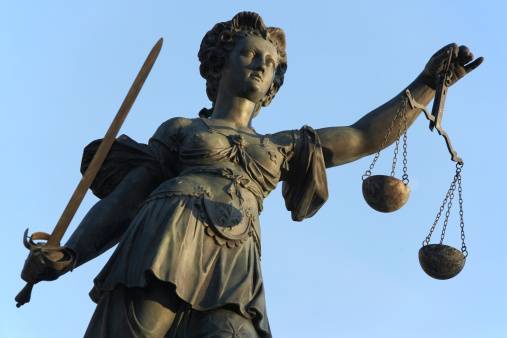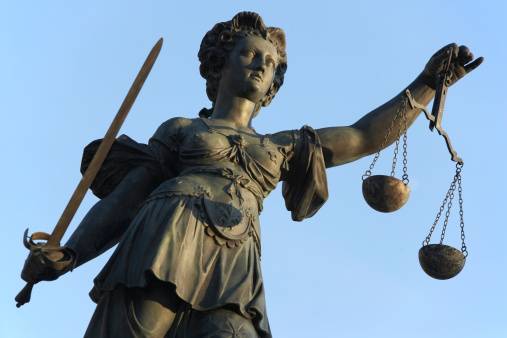

Transparency International’s 2023 Corruption Perception Index (CPI) released last week paints a chilling portrait: corruption flourishes where justice systems crumble, empowered by a toxic mix of weak institutions and powerful figures who manipulate the law for their own gain. This isn’t limited to authoritarian regimes; democratic leaders are increasingly complicit in undermining justice, leading to a global epidemic of impunity.
Bribery, abuse of power and the capture of entire justice systems by the wealthy and powerful are becoming commonplace. The consequences are devastating, with vulnerable populations denied access to justice while the rich and powerful skate free. This erosion of accountability creates a fertile ground for corruption to flourish, further weakening the very institutions meant to uphold the rule of law.
Africa, in particular, faces a daunting challenge. Although a few countries show signs of progress, the continent remains the most corrupt region globally. The 2023 CPI, focusing on the past decade, serves as a stark reminder: business as usual cannot continue. We must act now to strengthen justice systems and hold all accountable, regardless of their position or power.
Across the continent, the spectre of corruption looms large, its tentacles suffocating progress and justice. Weak judiciaries, unable to hold powerful figures accountable, become breeding grounds for exemption from punishment. Mozambique’s former finance minister, Manuel Chang, entangled in the “tuna bond” scandal, is still awaiting trial in the United States. Questions linger about a fair trial if he returned home. In Angola, billionaire Isabel dos Santos, accused of embezzlement, remains a fugitive despite Interpol’s pursuit. In Zimbabwe, “catch and release” for corrupt officials has become a grim routine, investigations yielding little more than public disillusionment.
South Africa’s Zondo commission of inquiry exposes the Gupta family’s state capture, yet extradition efforts remain futile. Malawi grapples with the fallout of corruption scandals, its citizens’ trust eroded. The Democratic Republic of the Congo’s “Congo Hold-up” lays bare massive plunder, but accountability remains a distant dream. In Nigeria, unresolved political corruption cases reign supreme, a testament to impunity’s stranglehold.
The case between Equatorial Guinea and France at the International Court of Justice highlights the complexities of navigating the existing international legal systems.
While space and time limit further exploration, the presented examples paint a chilling truth: domestic courts, often influenced by the very power structures plagued by corruption, fail to deliver justice. We urgently need alternative solutions.
Regional and sub-regional courts offer possibilities. But, the Southern African Development Community Tribunal‘s fate, silenced when it dared to challenge political decisions, serves as a stark reminder of their limitations. Similarly, the African Court on Human and People’s Rights, although mandated to handle corruption, lacks the political will for enforcement, with few African countries ratifying the necessary protocol.
A third, potentially promising option is an International Anti-Corruption Court (IACC). Yet, African leaders, still harbouring anxieties from the International Criminal Court, hesitate to offer their support. Opponents might cite national sovereignty concerns, but let’s not forget the sovereignty of the people, robbed of their resources and denied justice. The IACC can complement, not replace, national efforts, upholding the rule of law and fostering international asset recovery.
The time for hesitation is over. The human cost of inaction is immense. Let’s unite behind an IACC, sending a clear message: corruption has no safe haven, and justice knows no borders.
Prosper S Maguchu is an assistant professor of law specialising in financial crimes and international asset recovery from a human rights based approach.
Corruption flourishes when justice systems are captured by the wealthy and powerful





